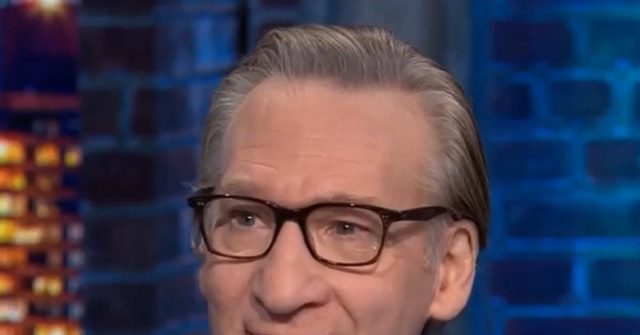Has Trump Uncovered the Truth About U.S. Power?

Understanding Bill Maher's Insights on Power Dynamics and Trade Practices
In a recent episode of HBO's “Real Time,” host Bill Maher shared his thoughts on the United States' global standing and trade practices, particularly in reference to remarks made by former President Donald Trump. Maher's analysis sheds light on complex issues involving power dynamics, international trade, and the role of organizations like NATO. His commentary not only reflects a critique of current practices but also encourages a broader discussion about America's influence in global affairs.
The Concept of Power in Global Politics
Maher's statement that America has not fully utilized its power resonates with many observers of international relations. The idea that the U.S. is the "biggest swinging dick" in the world suggests a recognition of its historical dominance. However, this power is often debated in terms of how effectively it is wielded. The U.S. has an arsenal of economic and political tools at its disposal, but their application can be inconsistent.
There are several dimensions to consider when discussing America’s global power:
- Military Presence: The U.S. maintains a significant military presence worldwide, which can be a deterrent against aggression from other nations.
- Economic Influence: As one of the largest economies, America's decisions on tariffs and trade agreements can significantly affect global markets.
- Cultural Impact: American culture, through media and technology, has a profound influence on lifestyles and norms across the globe.
Examining Trade Practices
Maher touched upon the notion that certain nations engage in unfair trade practices with the United States. This assertion is backed by numerous reports indicating that some countries benefit disproportionately from trade agreements. The challenge lies in defining what constitutes "unfair" practices and whether tariffs are the best remedy for these issues.
Some of the common concerns regarding unfair trade practices include:
- Subsidies: Some countries provide significant subsidies to their industries, allowing them to sell products at lower prices than competitors.
- Currency Manipulation: Manipulating currency values can give a nation an unfair advantage in international trade.
- Intellectual Property Theft: The theft or forced transfer of technology from American companies to foreign entities has been a longstanding issue.
NATO and Collective Responsibility
Maher pointed out that former President Trump was not entirely incorrect in his stance regarding NATO. The idea that NATO allies should contribute more to their defense budgets has been a contentious topic. Maher’s acknowledgment of this issue reflects a broader concern among many policymakers about the equitable distribution of defense responsibilities.
- Financial Contributions: NATO members are expected to spend at least 2% of their GDP on defense, yet many fall short of this target.
- Shared Security: The principle of collective defense means that all members should contribute fairly to mutual security efforts.
The Economic Perspective on Tariffs
Despite agreeing with some of Trump's sentiments, Maher expressed reservations about the effectiveness of tariffs as a tool for economic negotiation. Tariffs can lead to a range of unintended consequences, including increased costs for consumers and strained relationships with trade partners.
Critics of tariffs argue that:
- Increased Prices: Tariffs often result in higher prices for consumers as businesses pass on costs.
- Retaliation: Countries targeted by tariffs may impose their own tariffs in response, leading to a trade war.
- Job Losses: Industries reliant on exports may suffer, potentially leading to job losses domestically.
The Importance of a Balanced Approach
Maher’s analysis invites a critical examination of America’s role on the global stage. While acknowledging that there are valid points regarding trade practices and NATO contributions, it is essential to consider a balanced approach that leverages diplomatic channels alongside economic measures.
In the context of global trade, collaboration can often yield better results than confrontation. Engaging other nations in dialogue about fair trade practices could lead to mutually beneficial agreements that enhance international cooperation and stability.
Future Implications
The dialogue around America’s use of power and its impact on international relations continues to evolve. As global dynamics shift, the U.S. must adapt its strategies to maintain its influence while fostering positive relationships with other nations.
Maher’s insights serve as a reminder that while America holds significant power, it is essential to use that power wisely. The goals should be to promote fair trade, ensure collective security, and maintain a leadership role that reflects democratic values and respect for international norms.
FAQs
What are the main concerns regarding unfair trade practices?
The main concerns include subsidies that disadvantage competitors, currency manipulation that distorts trade prices, and intellectual property theft that undermines innovation.
How do tariffs affect consumers?
Tariffs can lead to increased prices for goods, as businesses often pass the costs onto consumers, potentially reducing their purchasing power.
What role does NATO play in global security?
NATO serves as a collective defense organization, where member countries agree to mutual defense in response to an attack, promoting stability and security in the region.
As we navigate these complex issues, it's crucial to consider how the U.S. can effectively leverage its power to promote fair practices and enhance global security. How can America balance its interests while fostering a cooperative international environment? #GlobalTrade #USPower #NATO
Published: 2025-08-16 04:02:53 | Category: Trump GNEWS Search



